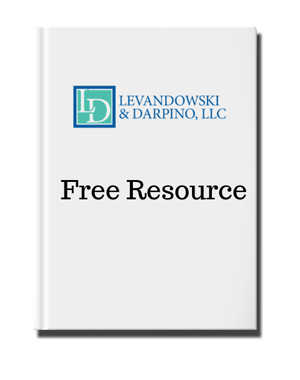What is a Will?
A Will is a legal document that helps your executor to put your affairs in order at the time of your death. It allows you to express your intentions regarding your estate (your home, money, and other assets). Your Will identifies who will handle your estate (your “executor”), to whom your assets will be distributed (your “beneficiaries”), and who will serve as guardian of your minor children. If you have a potential beneficiary who has special needs (such as a disabled child), your Will can contain instructions to your executor to make sure such a beneficiary is taken care of according to your wishes. A properly drafted Will can also make sure that any disabled beneficiary who is receiving government benefits can receive your bequest without losing those public benefits.
If you die without a Will (or “intestate”), your estate will be distributed according to a formula established by Pennsylvania law. The surviving spouse does not necessarily inherit the entire estate. Your surviving spouse may have to share your estate with other family members. A court may name a guardian of your minor children of whom you would not have approved. The state’s formula does not take the special needs of a disabled beneficiary into account.
Your Will covers only “probate” property. Probate property is property titled solely in the decedent’s name at the time of his or her death. Many types of property or forms of ownership pass outside of probate. Jointly-owned property, property in trust, life insurance proceeds and other property with a named beneficiary, such as IRAs or 401(k) plans, all pass outside of probate. Please note that even though these types of assets do not pass to your heirs by way of your Will, they must be carefully considered in developing your estate plan. This means that your beneficiary designations are as important as your Will. Note that your retirement plans (IRAs, 401(k)s, etc…) are subject to Pennsylvania inheritance tax even though they are not part of your probate estate.
Medicaid Protection Wills
Consider this scenario: One spouse is in a nursing home and getting Medicaid benefits, and the spouse living at home dies first.
If this should happen, your estate could be lost because Medicaid would force the spouse in the nursing home to spend down the estate. You might think that this situation can be avoided by both spouses executing Wills saying that, if the surviving spouse is in a nursing home, the estate goes to other heirs, such as children. However, it is a little more complicated than that.
Under Pennsylvania law, one spouse cannot completely disinherit the other; a surviving spouse always has a right to one-third of a deceased spouse’s estate no matter what the Will says. Because of this law, Medicaid would force the surviving spouse to take “against the Will” which puts one-third of the estate at risk and creates a complication for your executor. Medicaid wants the surviving spouse’s one-third share to be spent on the nursing home.
That is why there is language in the Medicaid Protection Wills that we prepare for married couples that simplifies estate administration for your executor and can protect the entire estate.
Why Should You Have a Will?
1) With a Will, you can direct where and to whom your estate will go after your death. If you die intestate (without a Will), your estate will be distributed according to Pennsylvania state law. Such distribution may or may not be in accord with your wishes.
2) A Will facilitates the smooth administration of your estate. Often, the probate process can be completed more quickly and at less expense to your estate if there is a Will. With a clear expression of your wishes, there are unlikely to be any costly, time-consuming disputes over who gets what.
3) Only with a Will can you choose the person to administer your estate and distribute it according to your intentions. This person is called your “executor” (or “executrix” if you appoint a woman).
4) For larger estates, a well-planned Will can help reduce or eliminate estate taxes.
Call (610) 446-9626 or contact us here to schedule a consultation.
Levandowski & Darpino
Latest posts by Levandowski & Darpino (see all)
- Medicaid Myths - February 7, 2020
 Elder Law & Estate Planning Attorneys
Elder Law & Estate Planning Attorneys






